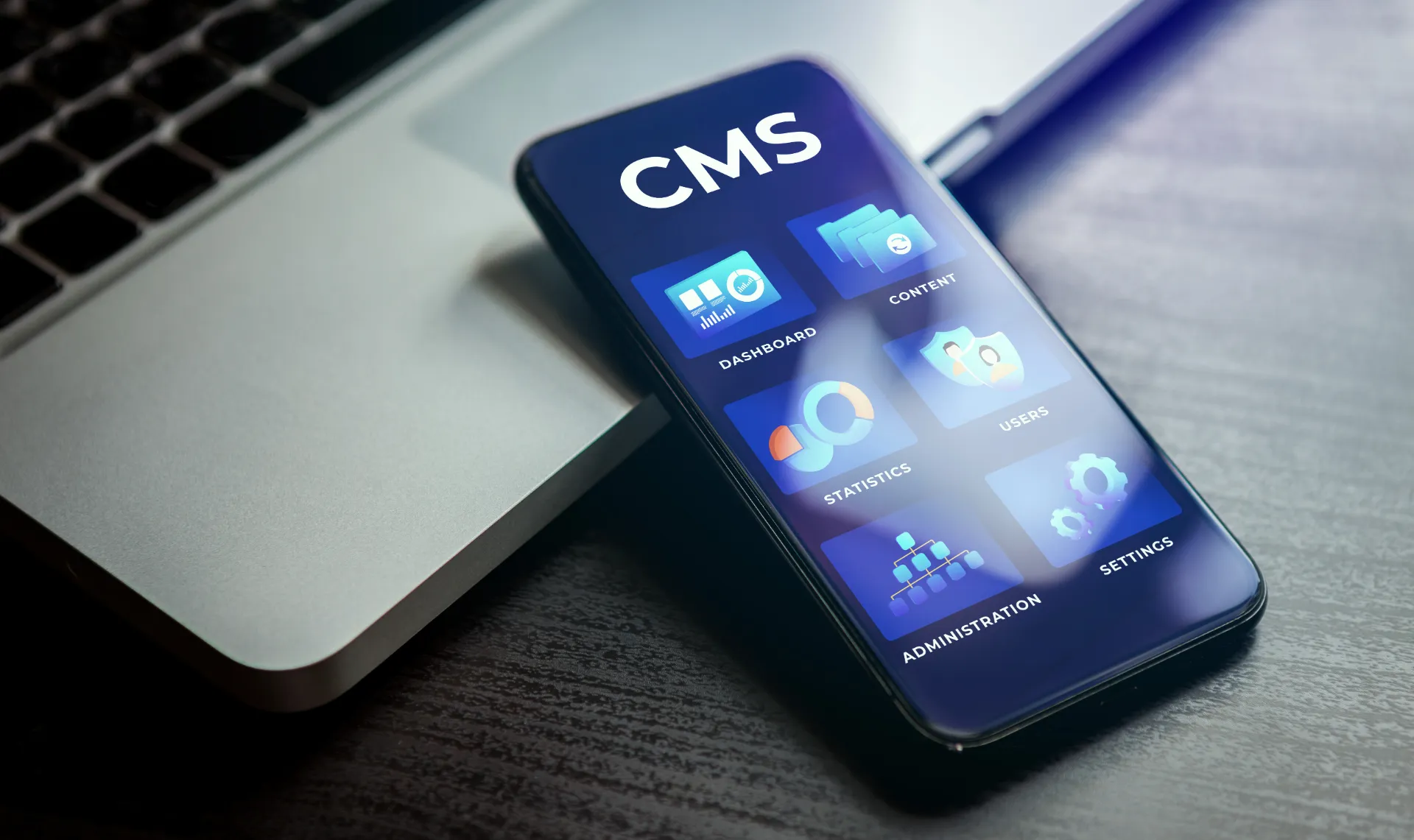
What is a CMS?
CMS stands for Content Management System - often referred to as a publishing solution or publishing system. A CMS is the platform you use to publish and edit content on your website. It can often also be the same platform used to set up design templates, page structure and functionality on your website. In this article, we will also explain a little about the different types of publishing solutions available.
Read also about other important choices that need to be made if your company is planning a new website.
What types of CMS are there?
There are big differences in complexity, functionality and target audience for the different solutions. The simplest ones allow you to set up a website with no prior knowledge, with ready-made design templates and drag-and-drop solutions. The more advanced systems have, for example, better support for role access, support for CRM systems, APIs and much more. In the middle, you have a range of solutions that take the best of both extremes, but for that very reason can cause an inexperienced user to make the wrong choice and make things a little too complicated. We elaborate more on the pros and cons in the next sections.
Simple do-it-yourself solutions
The simplest variants on the market are solutions such as Wix and Squarespace. These are aimed at small businesses and individuals who want to do everything themselves.
Benefits:
- You can quickly get started with the website
- Ready-made design templates and easy customization of the look
- No prior knowledge is needed and it's easy to find guides online
Disadvantages:
- Limited functionality and implementation of other IT systems
- Not the best for good search engine optimization
Scalable and flexible CMS
This category includes platforms such as WordPress, Webflow, Craft, Joomla and Drupal. This type of CMS has a large and broad target group, and is suitable for both small and large companies that have their own website manager or web agency to create and run the website.
Read also: Can WordPress be used for professional websites?
Benefits:
- Greater access to integrations and extensions for better customized functionality and form
- Scalable and flexible, so your site can grow with your business
Disadvantages:
- Support for third-party integrations can pose a security risk
- You may end up adding more features than you need, making the setup cluttered and difficult to manage
Read also: Maintenance and operation of WordPress websites.
Store enterprise CMS
Larger companies and corporations often have complex requirements when it comes to integrated IT solutions, APIs and CRM systems on the website. For example, there may be a need for a back-end system that can manage several different websites simultaneously. In addition, there may be a need for good management of user groups and access.
This category often overlaps between the categories "scalable and flexible CMS" and "Headless CMS," but there are also a number of specialized solutions for various niches.
Benefits:
- Content can be published on multiple websites and in multiple marketing channels
- Good integration with CRM systems and inbound marketing automation
Disadvantages:
- Can have a very high price tag
- May require advanced setup and dedicated resources for operation and maintenance
Headless CMS
This type of publishing system has become more and more widespread in recent years. This category differs slightly from the others. A headless CMS is only used to edit and publish the content itself (text, images, video, etc.) and has nothing to do with how the website itself is structured or designed. This means that you can use one CMS to manage and publish content on multiple platforms. Examples of such solutions are Sanity, Ghost and Contentful.
Read a separate article on the pros and cons of headless CMS here!
You can also convert several others that have a good API solution, such as WordPress, to function as a headless CMS.
Benefits:
- Distribute content across websites, apps and social media from a single system.
- Easier to keep a common thread across all platforms
Disadvantages:
- Requires technical knowledge to connect to the website and other channels
- Not all website platforms can be connected to a headless CMS
